Skiing has long had a reputation as a sport for the wealthy. Since its introduction to North America in the early 20th century, it’s typically been reserved for those who can afford to take time off from work to spend exorbitant amounts of money traveling to far-flung destinations like Colorado, Idaho and New England.
Today, not much has changed except that the cost of skiing has grown exponentially. During the 2022-23 ski season, 47% of skiers had an income of $100,000 or more, according to Snowsports Industries America‘s annual participation study. Skiers and riders on a tighter budget have to find alternate options from the megaresorts, given they can expect to pay nearly $300 per person, per day at popular destinations like Vail, Colorado; Deer Valley, Utah; and Jackson Hole, Wyoming, even if tickets are purchased online in advance. Factor in lodging, food, travel and gear rentals, and the cost starts to get out of reach.

Related: A new Grand Hyatt is opening in Park City just in time for ski season
Luckily, there are ways to cut down on costs. Most ski resorts are incentivizing skiers to purchase season passes or day tickets in advance by offering discounted pricing. Multimountain passes like the Epic and Ikon passes, which cost $1,025 until Oct. 9 and $1,359, respectively, offer unlimited access to their resorts. But even those offer rates that are cheaper the earlier you buy. The Epic Pass has several options like the Northeast Value Pass, which costs $626 until Oct. 9 and gets skiers unlimited and limited access to select Northeast ski resorts. And then there are passes like the Indy Pass, which offers two days each at over 200 resorts (although it’s currently on a waitlist-only purchase option for the 2024-25 ski season), and Mountain Collective, which gets passholders two days at each of its 25 resorts for $659.
But for those unwilling to commit to buying a multiday or multimountain pass, there are plenty of smaller ski and ride areas offering lift tickets that don’t require taking out a loan to pay for. And you don’t necessarily have to sacrifice snow quality, terrain or a cool vibe to save a few bucks.
Below, we round up a few resorts with the cheapest lift tickets in North America.
Burke Mountain, Vermont
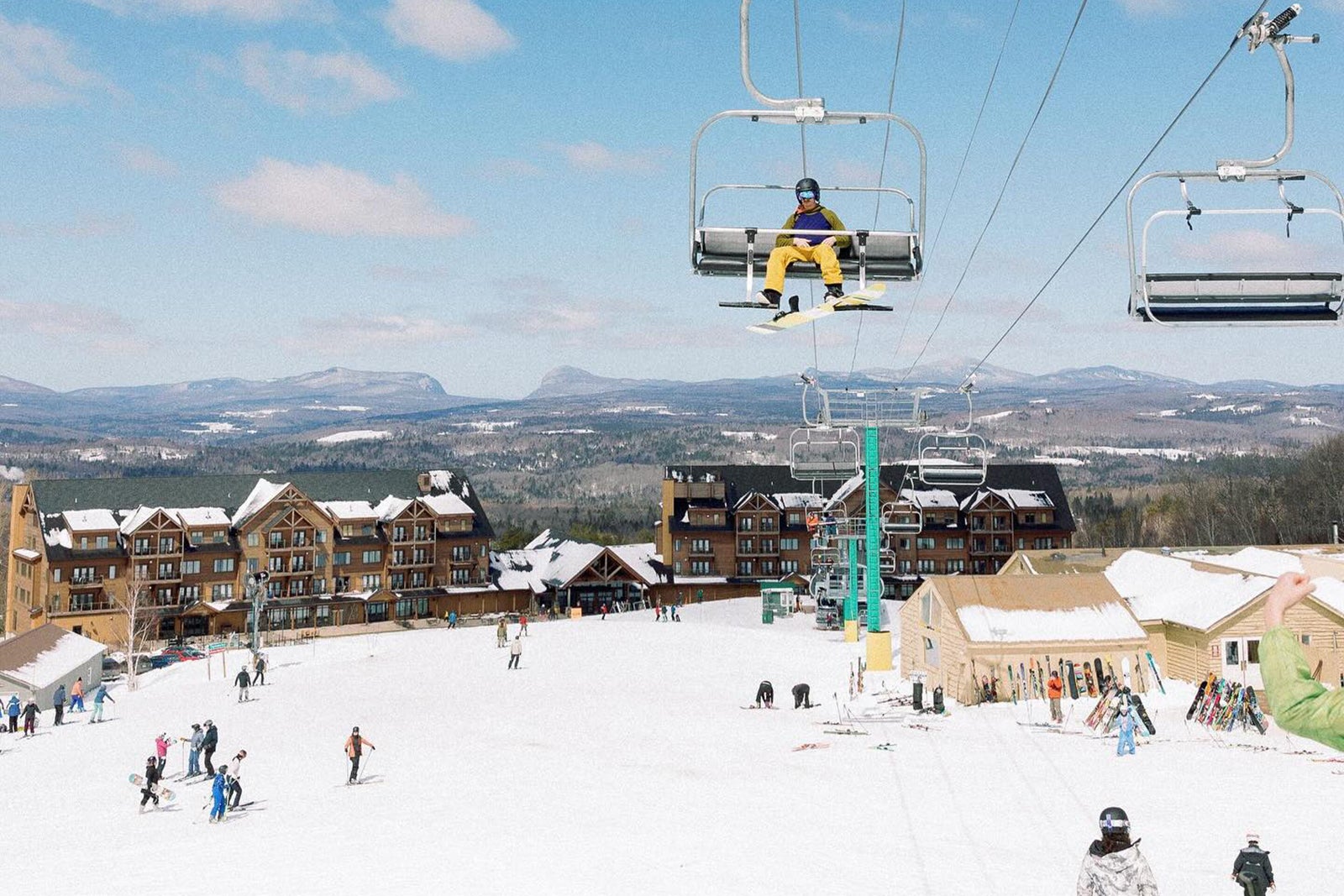
Vermont is known to have some of the deepest and most reliable snow on the East Coast. And while Burke‘s 217 inches of annual snowfall isn’t the most in the country — or even the state — it’s more than what most New England resorts typically get.
Located in northern Vermont, two hours from Burlington, Vermont, and less than seven from New York City, Burke Mountain offers 53 named trails and glades on 270 acres of terrain and has a vertical drop of over 2,000 feet. Adult lift tickets are just $89 per day on weekends and $45 midweek.
Mount Abram, Maine
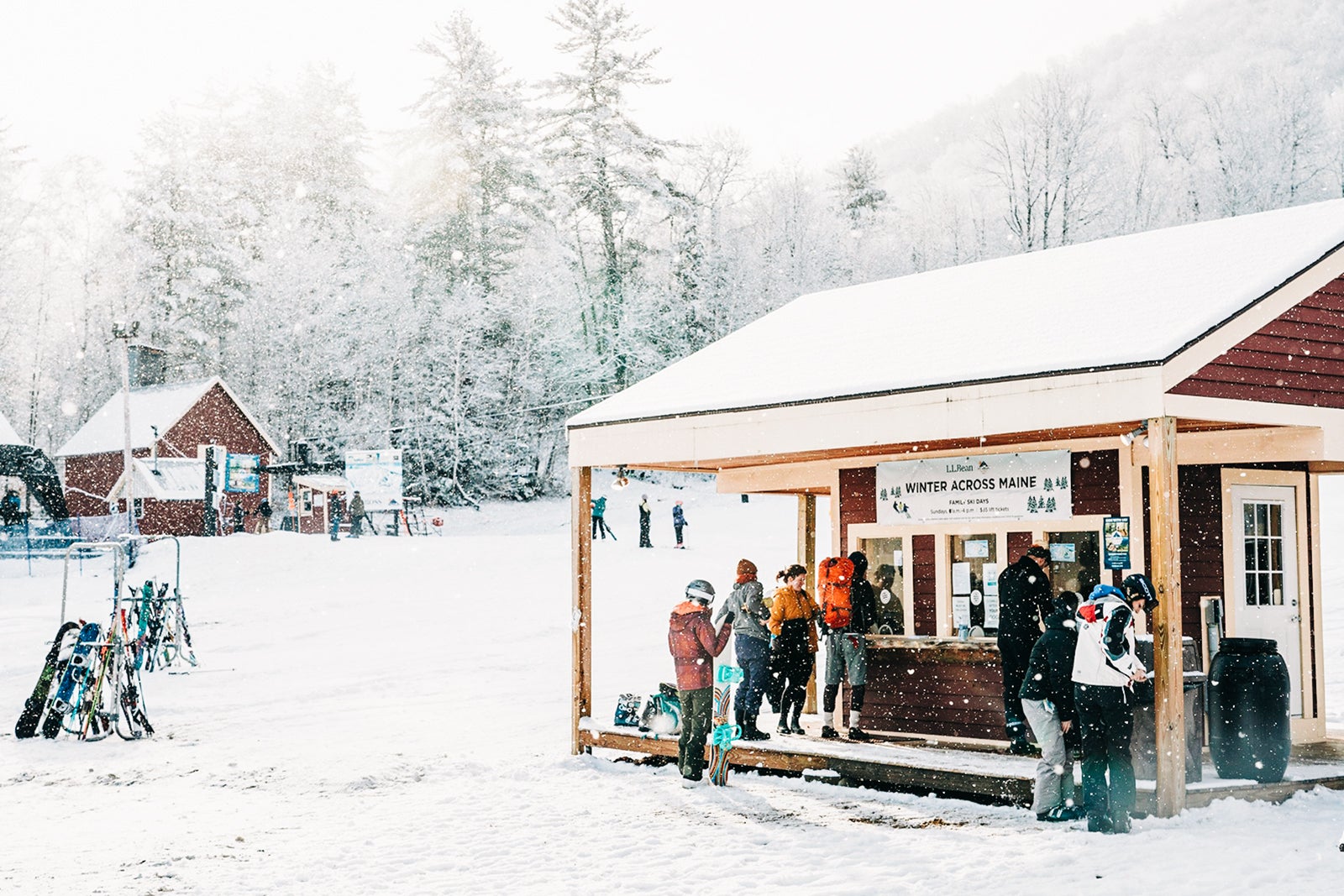
Mount Abram is a sleepy little hill just south of Bethel, Maine, and is popular among locals. You won’t find luxury resorts and all the bells and whistles of places like Park City, Utah, or Aspen, Colorado, but you won’t find the crowds or lift lines either.
Like most New England resorts, Mount Abram isn’t the place to go for bottomless powder or steep chutes and open bowls, but with 42 trails and glades on 450 acres and a 1,150-foot vertical drop, there’s enough to keep most skiers and riders happy for a few days. There are plenty of short-term rentals around the resort and a handful of hotels and lodges in nearby Bethel, Maine, which is home to the much larger (and more expensive) Sunday River. Mount Abram is also just an hour from Portland, Maine, which is a worthy destination in itself. If the hour commute isn’t a deal-breaker, staying in the city — which has more breweries per capita than any other city and a mean lobster roll — is worth considering.
Lift tickets at Mount Abram are just $39 per day thanks to a partnership with LL Bean, but the mountain is closed Monday through Wednesday in winter. Indy Pass holders also get two days at the ski area.
Willamette Pass, Oregon
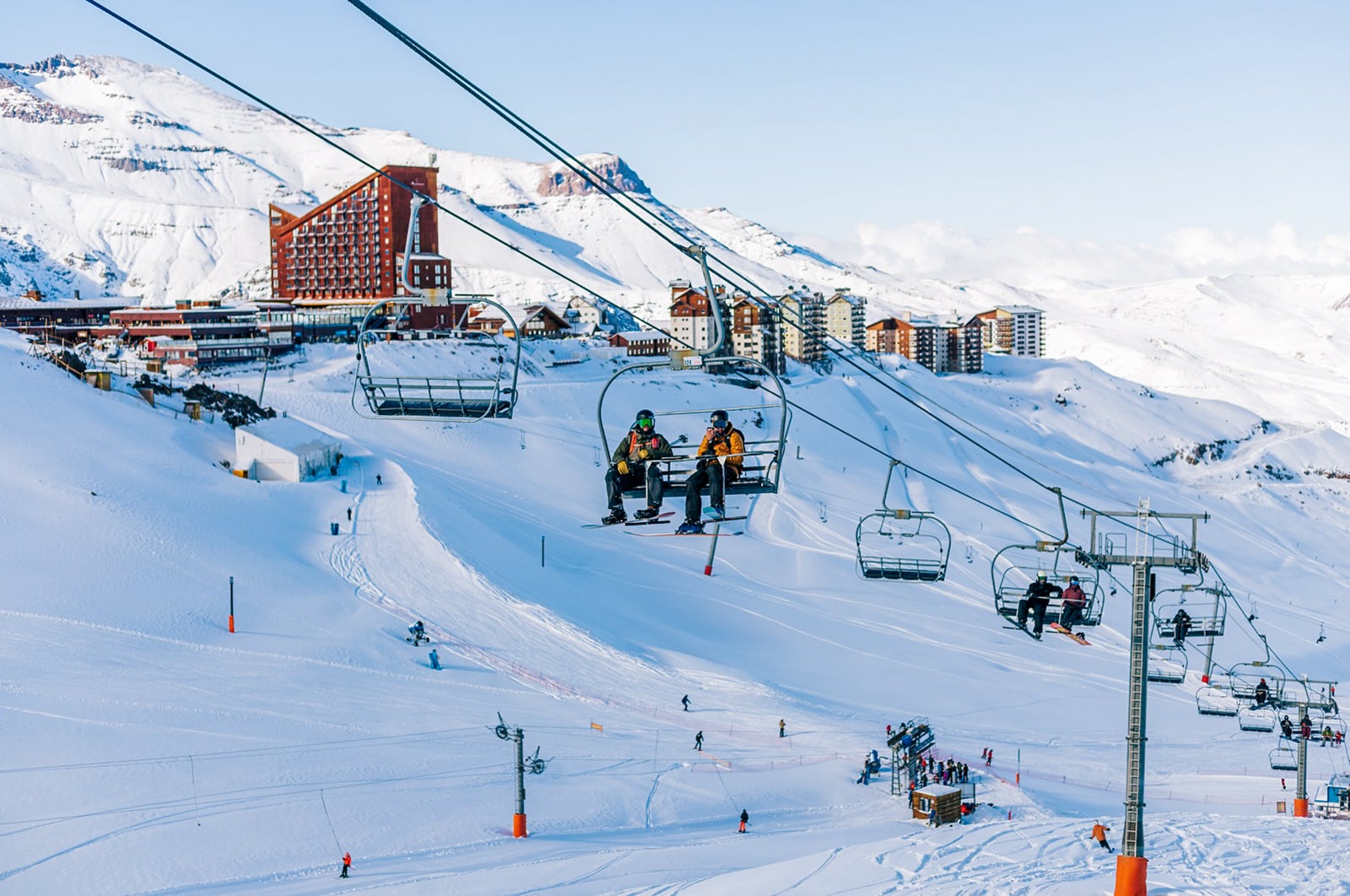
With just 555 acres of skiable terrain, Willamette Pass is a relatively small resort, but the 430 inches of annual snowfall, thanks, in part, to its high base area that sits 5,120 feet above sea level makes up for it.
The resort is just an hour from the small city of Eugene, Oregon, and has a vertical drop of 1,563 feet, 225 acres of groomed terrain and over 12 miles of Nordic trails. Like many smaller resorts, there’s plenty of easier terrain, perfect for beginners and families, but Willamette Pass is also home to RTS — one of the steepest inbound runs in the country. In fact, nearly half of the resort’s trails reach or exceed 35 degrees in spots, which is steeper than you might imagine, making it a great resort for intermediate and advanced skiers and riders. There isn’t much in terms of lodging at the resort, but the nearby towns of Oak Ridge and Crescent, Oregon, have several options. Or, you can make the one-hour drive to Eugene, which has plenty of restaurants and places to stay.
Lift tickets at Willamette Pass start at $19, and it plans on operating daily during the 2024-25 ski season for the first time in 20 years. Kids 12 and under and adults 75 and over ski for free, but tickets must be “purchased” online for $0.
Howelsen Hill, Colorado
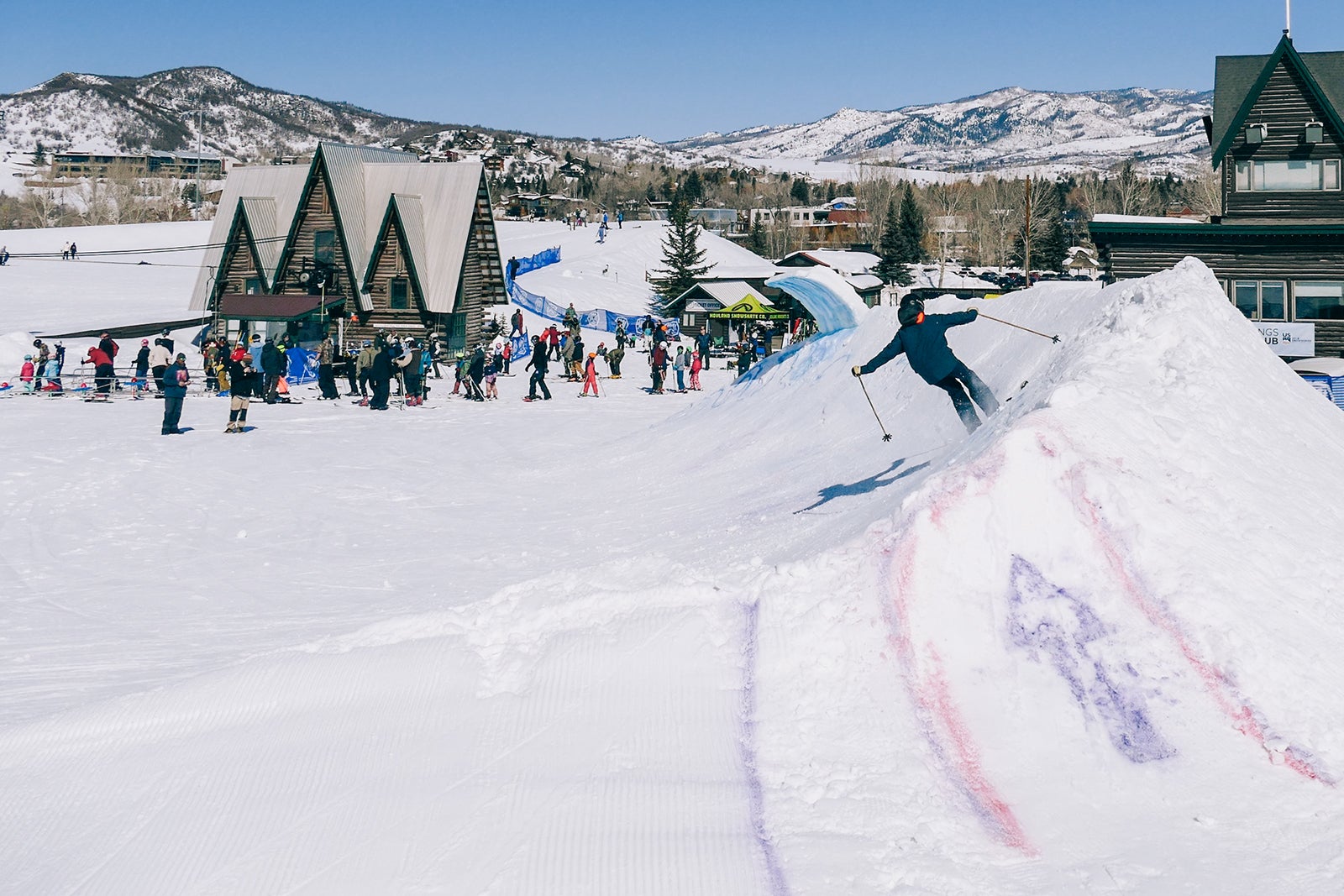
With just 50 skiable acres and less than a 440-foot vertical drop, Howelsen Hill isn’t the type of place worth flying across the country for, but its location in downtown Steamboat Springs, Colorado, and free lift tickets on Sundays (with non-Sunday tickets costing just $47 during the 2023-24 ski season) makes it worth checking out if you happen to be in the area and want to save a few bucks on lift tickets for a day or two.
The city-owned hill, which opened in 1915, is also the longest continuously operating ski area in North America. It’s known for being an Olympic training ground thanks to its impressive ski jumping complex.
Brian Head, Utah
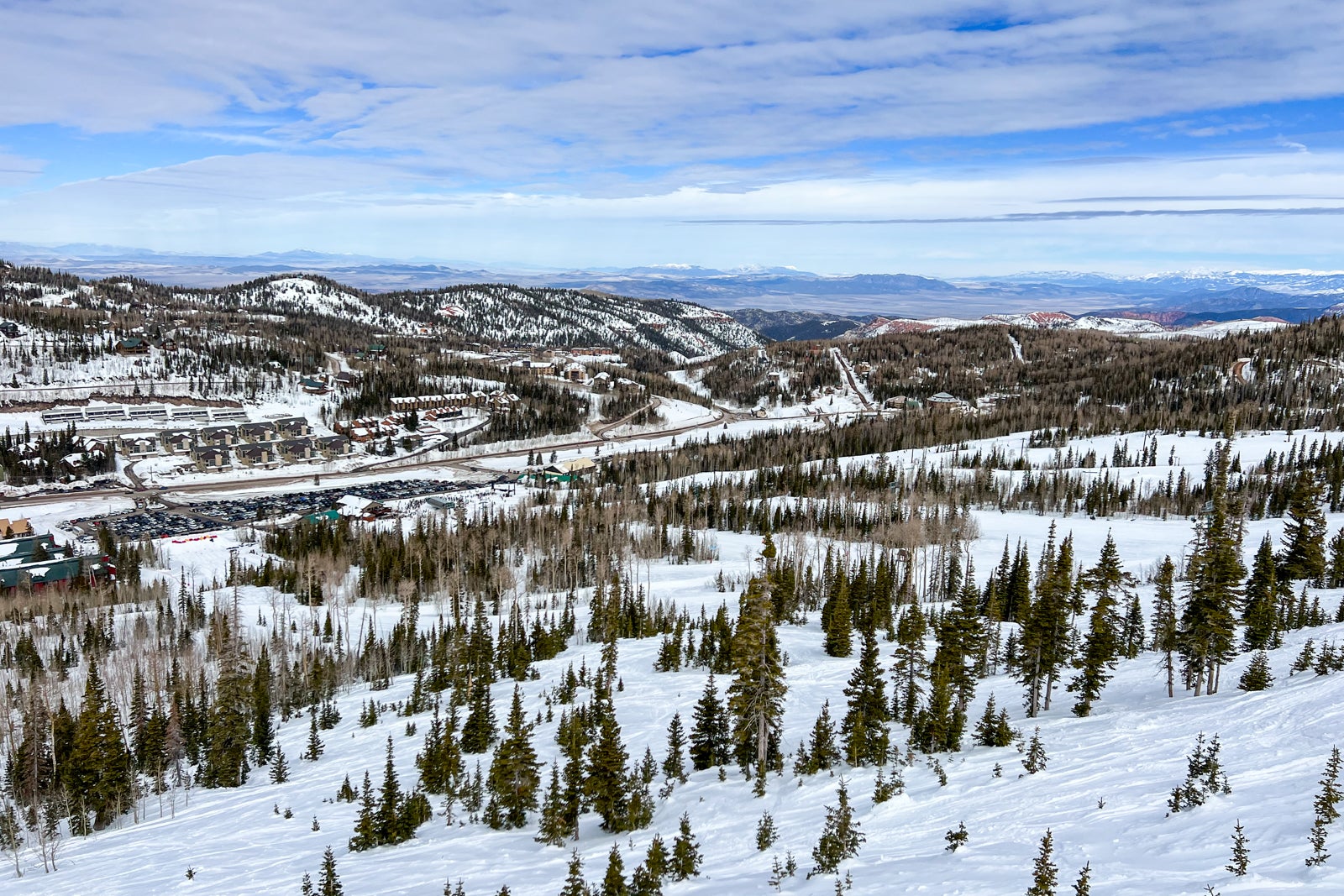
Thanks, in part, to having the highest base area in Utah, Brian Head Resort receives over 360 inches of dry, fluffy snow each year, making it a great spot for skiers and riders looking to maximize their powder days and minimize their credit card balances. Located in southern Utah, just an hour from Bryce Canyon National Park (which is worth visiting in winter!) and three hours from Las Vegas, Brian Head offers 650 acres of skiable terrain and 71 named runs across two connected mountains.
Related: What it’s like skiing at one of the last ‘hidden gem’ affordable ski resorts: Brian Head
The mountain operates a lodge that is just a two-minute shuttle ride from the slopes. Lift ticket prices vary, but when purchasing online in advance, they can be as low as $52 on Saturdays and $24 midweek. Early and late in the season, lift tickets can be purchased for less than $20. Kids 12 and under ski for free with the Power Kids Pass, which is also valid at its 12 partner resorts, including Willamette Pass. Adults 75 and older ski for free, too.
Ski Cooper, Colorado
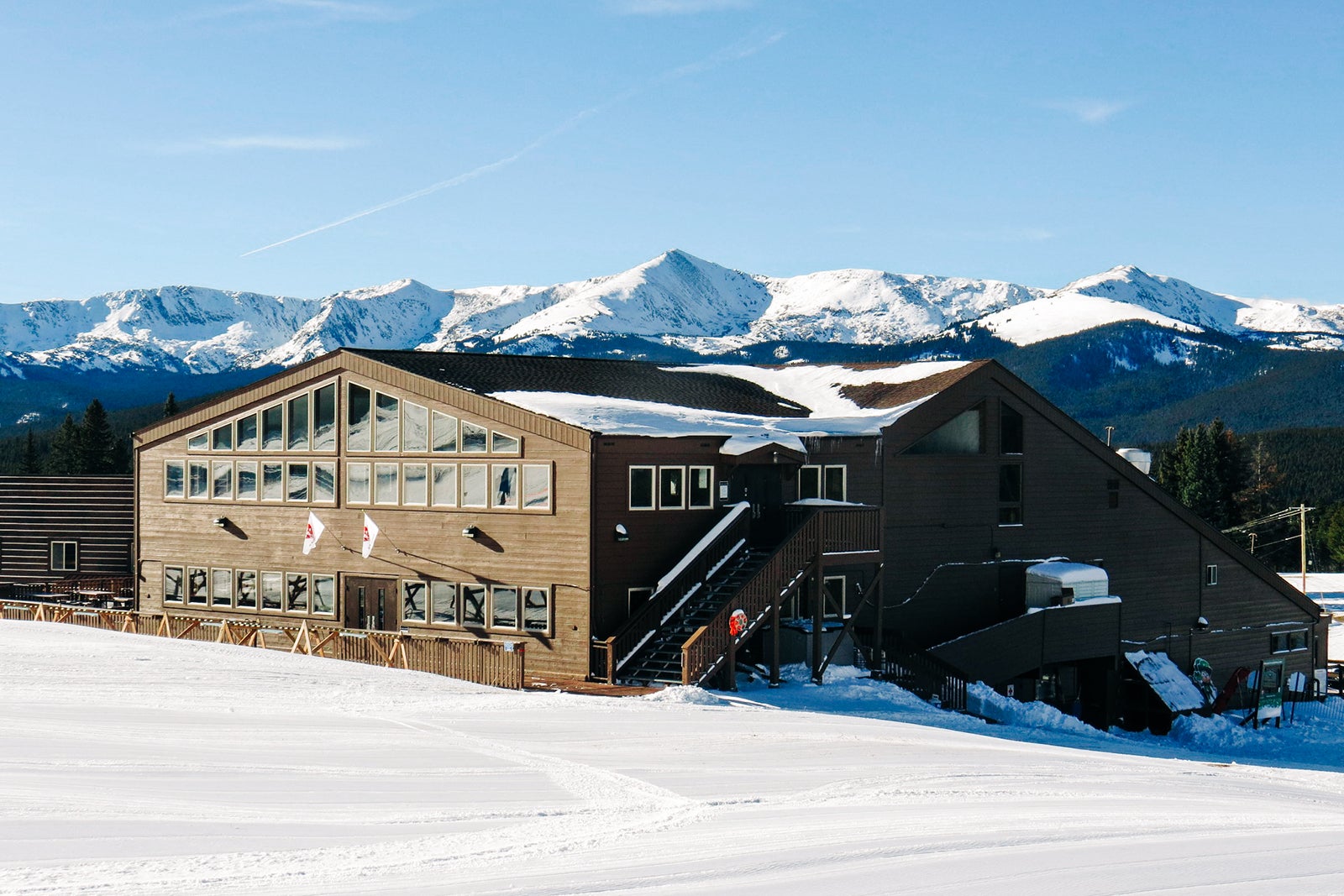
Founded in 1942 as a training ground for the 10th Mountain Division, Ski Cooper is one of the oldest and most affordable ski areas in Colorado. The resort gets an average of 260 inches of snow annually, which is plenty given that you won’t be competing with massive crowds for first tracks. And with a base elevation of 10,500 feet, you’re almost guaranteed soft and dry turns.
Ski Cooper’s 480 skiable acres deems it pretty small by Colorado standards, but it has a variety of beginner-friendly runs with a few challenging glades in the Tennessee Creek Basin zone.
Amenities at Ski Cooper are minimal — there’s no on-site lodging — but it’s just 15 minutes from Leadville, Colorado, a mid-19th-century mining town with plenty of restaurants, shops, and hotels and inns. Check out Melanzana if you want to do some shopping for locally made outdoor apparel, but book an appointment in advance to get access to their full line.
Weekend day tickets at Ski Cooper cost $95 during the 2023-24 season (pricing isn’t available yet for this year, though it’s unlikely it’ll change by much), and adults 75 and older can get a season pass for just $10. It’s also bringing back $30 Thursdays, where skiers and riders can get $30 lift tickets, $30 ski rentals and $30 off lessons if purchasing two days in advance.
Bridger Bowl, Montana
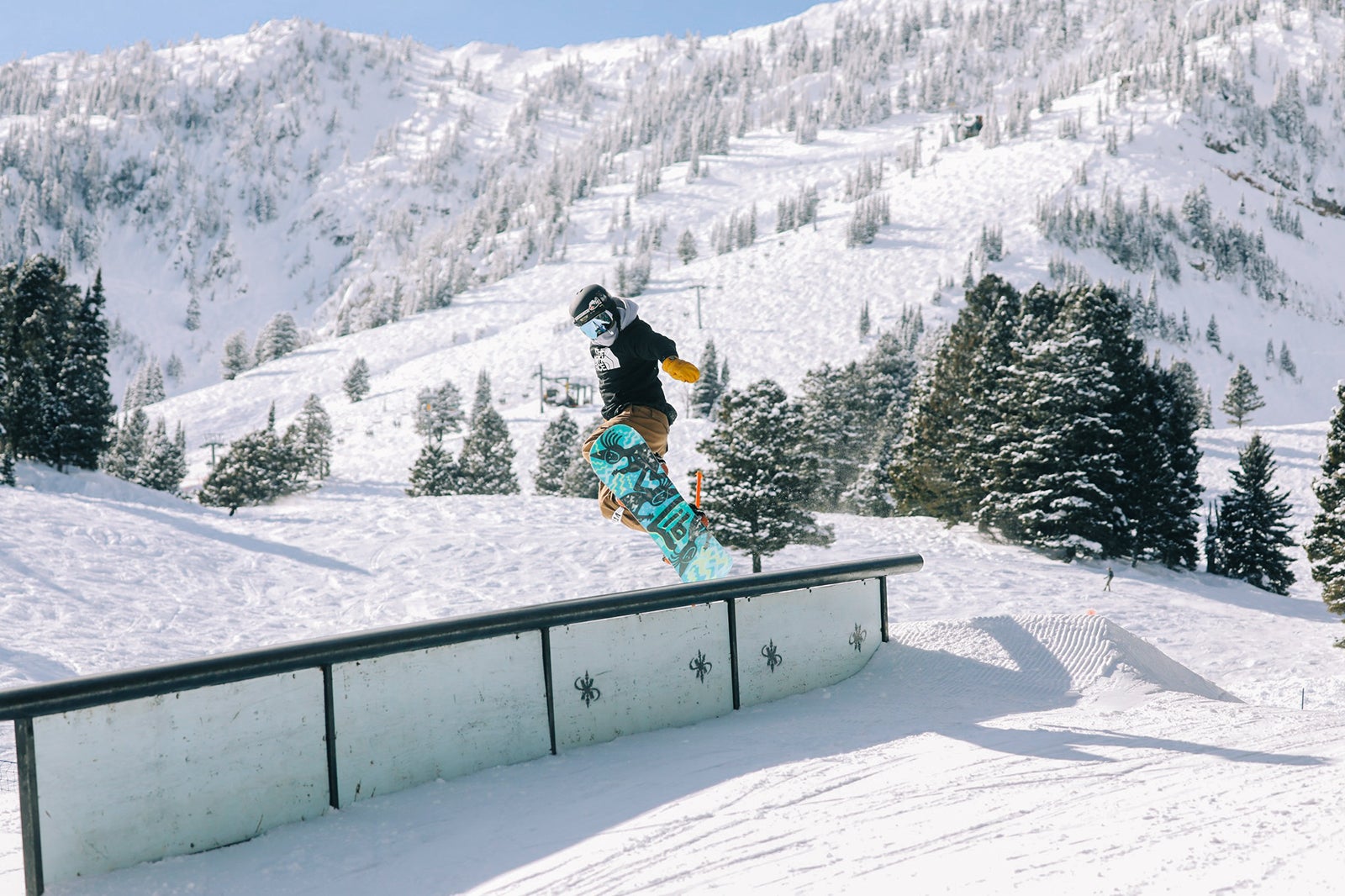
With a 2,700-foot vertical drop, 2,000 skiable acres and 300 inches of snow annually, Bridger Bowl rivals North America’s biggest resorts. Montana’s much larger and more expensive Big Sky gets most of the attention, allowing Bridger to maintain its laid-back, “locals” feel. But that doesn’t mean the expert skier of the group will be stuck on meandering groomers all day — Bridger has some extremely challenging terrain, including a ridge with steep chutes, cliff bands and open snow fields that require extensive avalanche and backcountry knowledge and gear.
Bridger Bowl does have a few base lodges where you can grab a bite to eat, get your skis tuned or warm up with some hot chocolate, but most lodging options are in the nearby town of Bozeman, Montana, just 25 minutes away.
Day tickets at Bridger Bowl are $82 for adults when purchased online in advance.
Baldy Mountain, British Columbia

British Columbia is known for its rugged terrain and consistent, dry powder snow, and Baldy Mountain Resort is no exception. Baldy’s base area, which sits 5,665 feet above sea level, is the sixth highest in Canada, making it likely you’ll find high-quality snow coverage top-to-bottom. It also gets between 300 and 420 inches of snow each winter, turning its 600 acres of groomed and natural terrain into a skier and rider’s paradise.
Baldy has several lodges and rentals around the resort, including the ski-in, ski-out Tinhorn Lodge in the upper village. It also has partnerships with a few nearby accommodations, offering “ski and stay” packages that get you discounts on lodging when you show your lift ticket.
Adult day tickets cost $87 on weekends, but the resort is also on the Indy Pass, which gets you two days on the hill. It’s closed Tuesdays and Wednesdays through ski season, so if you can hit it on Thursday after a storm, you’re in for a good time!
Related reading:



